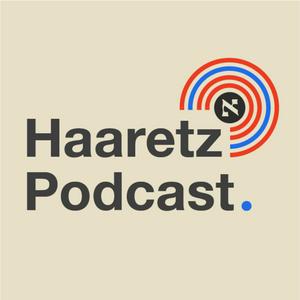For Rabbi Danya Ruttenberg, the financial support and professional opportunities afforded by her fellowship at the Wexner Foundation, which plugged her into a network of the “the most powerful Jewish professionals in the country,” were substantial.
But as a feminist rabbi whose most recent book is titled “On Repentance and Repair,” she felt she could not ignore the disturbing reality of the close personal and financial ties between Leslie Wexner, the benefactor of the foundation, and the late convicted sex offender Jeffrey Epstein, she tells the Haaretz Podcast.
In a personal act of accountability and repentance, in 2019, Ruttenberg – “shocked, disturbed and unsettled” by the early revelations regarding Epstein and Wexner – donated the funds she took from the foundation to an organization confronting sexual violence and challenged others to take similar steps.
There was little reaction to her call at the time. Now, with new details revealed in the Department of Justice release of the Epstein files, she says “my only regret is not speaking out earlier and more forcefully, no matter the cost.”
She warned that “when we try to pretend that none of this is happening, we feed every conspiracy theory. And when we say that who matters are raped children, and when we center the people who are harmed, and when we live the values of our Torah and of every other teaching that we claim is holy, then we dispel those theories, because we become the people who we are supposed to be … the people who are living our values.”
Read more:
Island Visit, NYC Flat and 'Belarusian Girls': Ex-Israel PM Ehud Barak Addresses Jeffrey Epstein Ties
The Ferrari, the Meetings and 'The Redhead': Latest Jeffrey Epstein Files Reveal Ties With Popular Israeli-American Researcher Dan Ariely
Memorializing Jeffrey Epstein? Pro-Netanyahu Channel 14 Confuses Convicted Sex Offender With Beloved Israeli Singer
Life After Harvard: What's in Store for Wexner Foundation's Israeli Leaders Program?
From 2020: Wexner Foundation Named After Billionaire Philanthropist Distancing Itself From Founder
See omnystudio.com/listener for privacy information.


